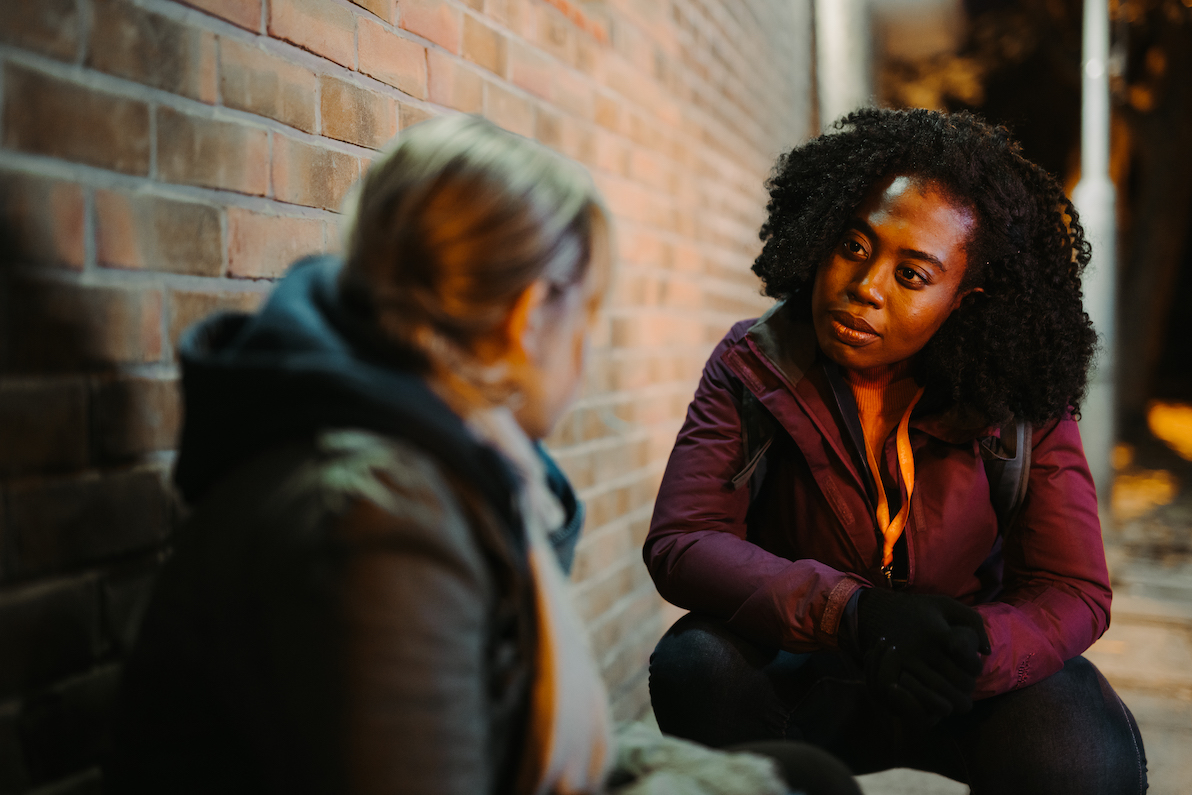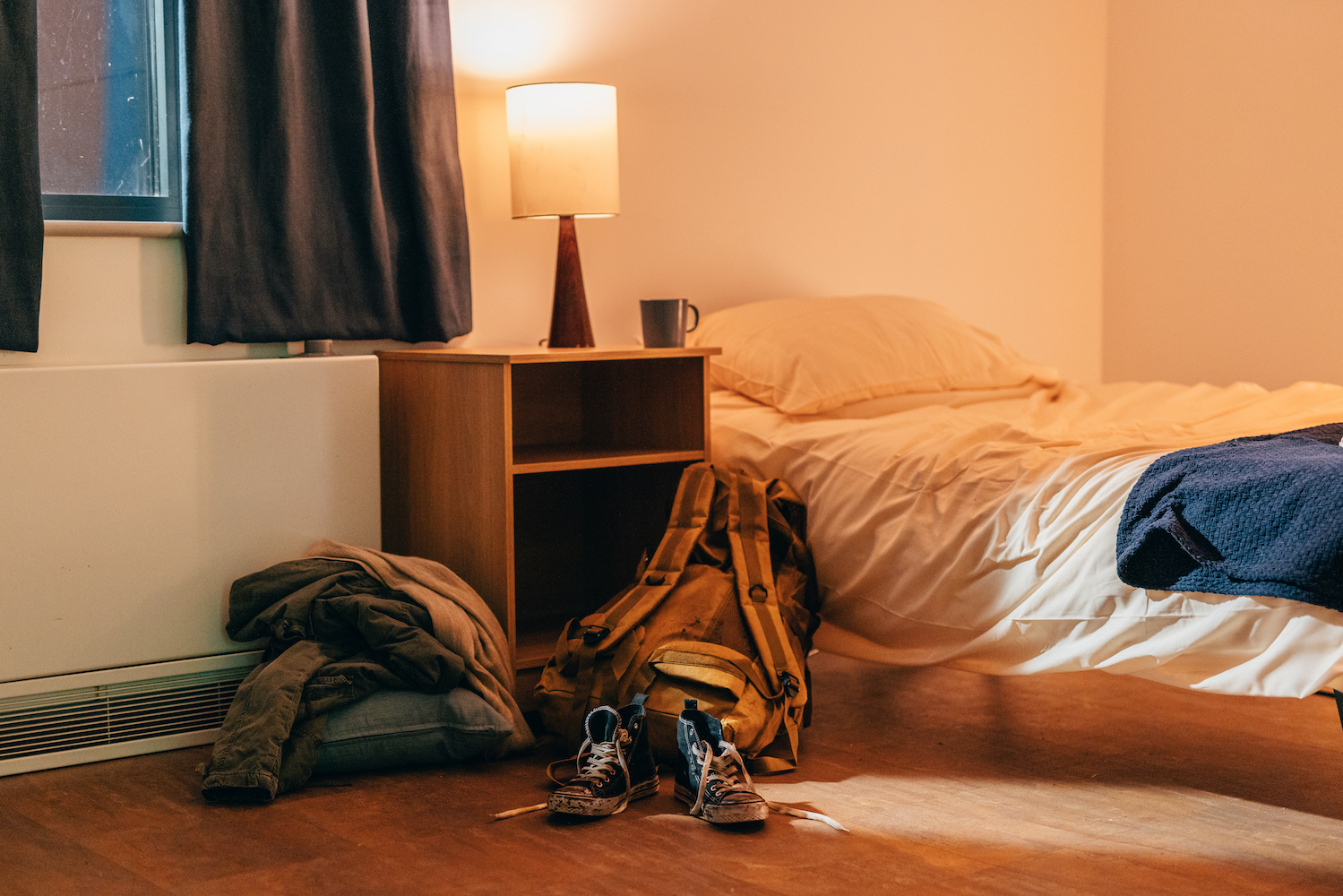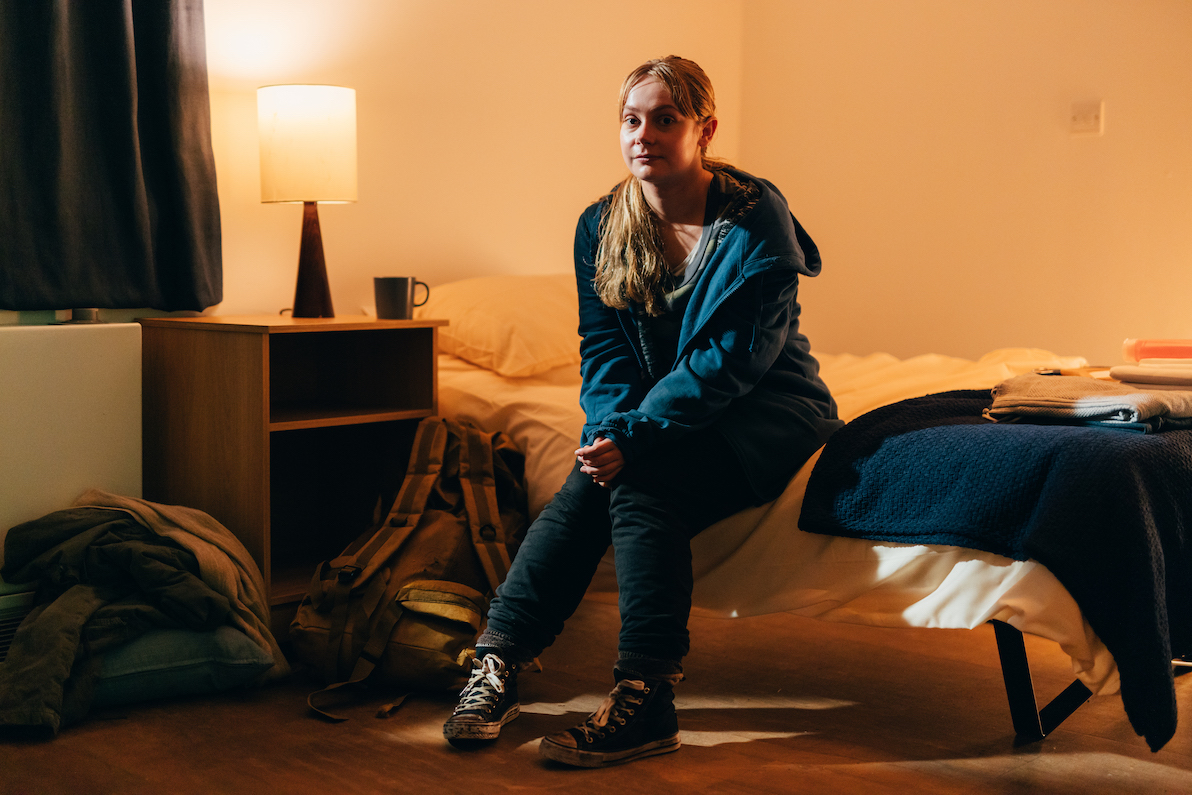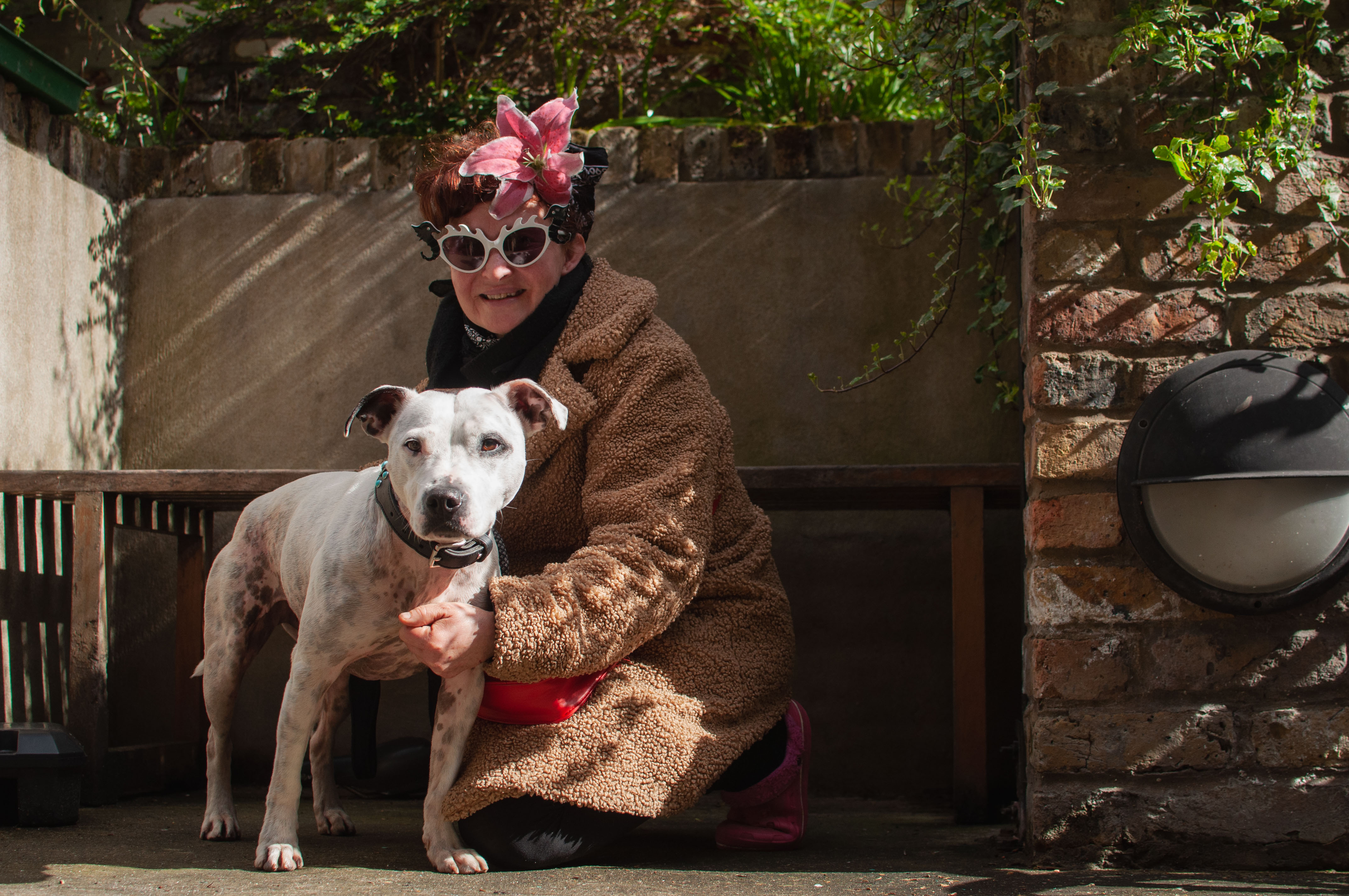"I was made homeless during the pandemic. I was caring for a lady, and the job came with a flat, because she needed 24 hour care. But when she passed away, I lost both my flat and the job. Suddenly, I had nowhere to go through no fault of my own.
"I also had Foxy, who had been the lady’s dog. None of the accommodation I was offered accepted pets, but I didn’t want to be without him – it would be like losing a family member.
"Eventually, I was evicted, and the council placed me with St Mungo’s. At first I had a room at one of the hostels, but now I’m in my own self-contained flat, which is part of St Mungo’s supported accommodation.
"It means a lot to be able to live here with Foxy. We’ll get up in the morning, and go for a walk in the park. Then we come back and have breakfast, and he sort of snoozes all day while I'm cleaning or whatever. Then we go for our afternoon walk. It’s a good routine, and it’s nice to meet other dog owners.
"When I first arrived, I didn't know what was going to happen. Or how long I’d even be here. But now I feel much more positive. My case worker is helping me to apply for housing and I’m hoping to get a flat of my own. Don't get me wrong, this place is lovely. I'd be happy here for a good long while, but obviously it's meant to be temporary. Because there’s lots more people who need support too.”










